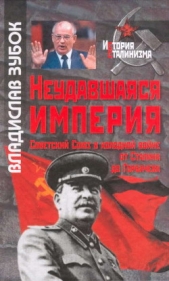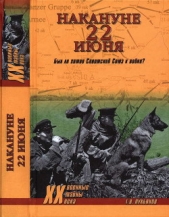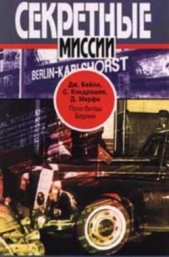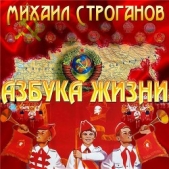Неудавшаяся империя: Советский Союз в холодной войне от Сталина до Горбачева

Неудавшаяся империя: Советский Союз в холодной войне от Сталина до Горбачева читать книгу онлайн
Книга профессора истории Университета Темпл (США) Владислава Зубока посвящена изучению мотивов и интересов Советского Союза в холодной войне. На ее написание повлияли новые источники и методологические находки: автор использовал большой массив ранее не доступных архивных документов — от записей, сделанных на заседаниях Политбюро, шифротелеграмм, которыми обменивались руководители компартий, до мемуаров бывших коммунистических лидеров и интервью с их помощниками, дипломатами, разведчиками и военными.
Книга предназначена историкам, политологам, преподавателям и студентам, всем интересующимся историей международных отношений СССР.
Внимание! Книга может содержать контент только для совершеннолетних. Для несовершеннолетних чтение данного контента СТРОГО ЗАПРЕЩЕНО! Если в книге присутствует наличие пропаганды ЛГБТ и другого, запрещенного контента - просьба написать на почту [email protected] для удаления материала
English R. D. Sources, Methods, and Competing Perspectives on the End of the Cold War // Diplomatic History 23, № 2 (Spring 1997).
Entspannung und Wiedervereinigung: Deutchlandpolitische Vorstellungen Konrad Adenauers 1955-1958. Vol. 2. Rhondorfer Gesprache / Hg. Schwarz H.-P. Stuttgart: Belser, 1979.
Erdmann Andrew P. N. War No Longer Has Any Logic Whatever: Dwight D. Eisenhower and the Thermonuclear Revolution // Cold War Statesmen Confront the Bomb: Nuclear Diplomacy since 1945 / Ed. J. L. Gaddis, et al. N. Y.: Oxford University Press, 1999.
Erickson J. Soviet War Losses: Calculations and Controversies // Barbarossa: The Axis and the Allies / Ed. J. Erickson, D. Dilks. Edinburgh: Edinburgh University Press, 1994.
The Establishment of Communist Regimes in Eastern Europe, 1944-1949 / Ed. N. Naimark, L. Gibiansky. Boulder, Colo.: Westview, 1997.
Evangelista M. Soviet Scientists and Nuclear Testing, 1954-1963 // Paper presented at the conference «The New Evidence on the Cold War». Moscow, January 12-15, 1993.
Evangelista M. Unarmed Forces: The Transnational Movement to End the Cold War. Itchaca, N. Y.: Cornell University Press, 1999.
Falin V. Politische Erinnerungen. Munich: Dromer Knaur, 1993.
The Fall of Detente: Soviet-American Relations during the Carter Years / Ed. O. A Westad. Oslo: Scandinavian University Press, 1997.
Faraday G. Revolt of the Filmmakers: The Struggle for Artistic Autonomy and the Fall of the Soviet Film Industry. University Park: Pennsylvania State University Press, 2000.
Farber D. The Age of Great Dreams: America in the 1960s. N. Y.: Hill and Wang, 1994.
Farber D. Taken Hostage: The Iran Hostage Crisis and America's First Encounter with Radical Islam. Princeton, N. J.: Princeton University Press, 2004.
Fatemi F. S. The USSR in Iran. Cranbury, N. J.: A. S. Barnes, 1980.
Ferguson N. Empire: The Rise and Demise of the British World Order and the Lessons for Global Power. N. Y.: Basic Books, 2003.
Fischer В. В. A Cold War Conundrum: The 1983 Soviet War Scare. An Intelligence Monograph. Langley, Va.: Center for the Study of Intelligence, September 1997.
FitzGerald F. Way Out There in the Blue: Reagan, Star Wars, and the End of the Cold War. N. Y.: Simon and Schuster, 2000.
Frankel E. R. «Novy Mir»: A Case Study in the Politics of Literature, 1952-1958. N. Y.: Cambridge University Press, 1981.
Friedberg M. A Decade of Euphoria: Western Literature in Post-Stalin Russia, 1954-1964. Bloomington: Indiana University Press, 1977.
Fromkin D. A Peace to End All Peace: The Fall of the Ottoman Empire and the Creation of the Modern Middle East. N. Y.: Owl Books, 2001.
Fulop-Miller R. The Mind and Face of Bolshevism: An Examination of Cultural Life in the Soviet Union. Translated by F. S. Flint and D. F. Tait. N. Y.: Harper and Row, 1965.
Fursenko A., Naftali T. Khrushchev's Cold War: The Inside Story of an American Adversary. N. Y.: W. W. Norton, 2006.
Fursenko A., Naftali T. «One Hell of a Gamble»: Khrushchev, Castro, and Kennedy, 1958-1964. N. Y.: W. W. Norton, 1997.
Gaddis J. L. International Relations Theory and the End of the Cold War// International Security 17 (Winter 1992/93).
Gaddis J. L. The Long Peace: Elements of Stability in the Postwar International System // International Security 10, № 4 (Spring 1986).
Gaddis J. L. We Now Know: Rethinking Cold War History. N. Y.: Oxford University Press, 1996.
Gaiduk I. V. Confronting Vietnam: Soviet Policy toward the Indochina Conflict, 1954-1963. Stanford, Calif.: Stanford University Press, 2003.
Gaiduk I. V. The Soviet Union and the Vietnam War. Chicago: Ivan R. Dee, 1996.
Galay N. Soviet Youth and the Army // Bulletin of the Institute for the Study of the USSR (Munich) (February 1963).
Gardner L. С Spheres of Influence: The Great Powers Partition Europe, from Munich to Yalta. Chicago: Ivan R. Dee, 1993.
Garthoff R. Berlin 1961: The Record Corrected // Foreign Policy 84 (Fall 1991).
Garthoff R. Detente and Confrontation: American-Soviet Relations from Nixon to Reagan. Rev. ed. Washington, D. C: Brookings Institution Press, 1994.
Garthoff R. The Great Transition: American-Soviet Relations and the End of the Cold War. Washington, D. C: Brookings Institution Press, 1994.
Garthoff R. A Journey through the Cold War: A Memoir of Containment and Coexistence. Washington, D. C: Brookings Institution Press, 2001.
Garthoff R. The KGB Reports to Gorbachev // Intelligence and National Security 11, № 2 (April 1996).
Garthoff R. Reflections on the Cuban Missile Crisis. Washington, D. C: Brookings Institution Press, 1987.
Gates R. M. From the Shadows: The Ultimate Insider's Story of Five Presidents and How They Won the Cold War. N. Y.: Simon and Schuster, 1996.
Gelman H. The Brezhnev Politburo and the Decline of Detente. Ithaca, N. Y.: Cornell University Press, 1984.
Gerovitch S. From Newspeak to Cyberspeak: A History of Soviet Cybernetics. Boston: Massachusetts Institute of Technology Press, 2002.
Gibiansky L. The Soviet Block and the Initial Stage of the Cold War: Archival Documents on Stalin's Meetings with Communist Leaders of Yugoslavia and Bulgaria, 1946-1948 // CWIHP Bulletin, № 10 (March 1998).
Gibiansky L. Sowjetisierung Osteuropas — Character und Typologie // Sowjetisierung und Eigenstandigkeit in der SBZ/DDR (1945-1953) / Hg. M. Lemke. Cologne: Bohlau, 1999.
Ginor I. «Under the Yellow Arab Helmet Gleamed Blue Russian Eyes»: Operation Kavkaz and the War of Attrition // Cold War History 1 (October 2002).
Gleijeses P. Conflicting Missions: Havana, Washington, and Africa, 1959-1976. Chapel Hill: University of North Carolina Press, 2002.
Gleijeses P. Havana's Policy in Africa, 1959-1976: New Evidence from Cuban Archives // CWIHP Bulletin, № 8-9 (Winter 1996/97)
Gluchowski L. W. Khrushchev, Gomulka, and the «Polish October» // CWIHP Bulletin, № 5 (Spring 1995).
Gluchowski L. W. The Soviet-Polish Confrontation of October, 1956. The Situation in the Polish Internal Security Corps. With Edward Nalepa // CWIHP working paper № 17 (1997).
Goedde P. GIs and Germans: Culture, Gender, and Foreign Relations, 1945-1949. New Haven, Conn.: Yale University Press, 2003.
Goldberg J. J. Jewish Power: Inside the American Jewish Establishment. Reading, Mass.: Addison-Wesley, 1996.
Goldgeier J. M. Leadership Style and Soviet Foreign Policy. Baltimore: Johns Hopkins University Press, 1994.
Goncharov S. N., Lewis J. W., Litai Xue. Uncertain Partners: Stalin, Mao, and the Korean War. Stanford, Calif.: Stanford University Press, 1993.
Gorbachev M. On My Country and the World. N. Y.: Columbia University Press, 2000.
Gorbachev Mikhail and Zdenek Mlynar. Conversations with Gorbachev. Introduction by Archie Brown. N. Y.: Columbia University Press, 2001.
Gorlizki Y., Khlevniuk O. Cold Peace: Stalin and the Soviet Ruling Circle, 1945-1953. N. Y.: Oxford University Press, 2004.
Gould-Davies N. Rethinking the Role of Ideology in International Politics during the Cold War //Journal of Cold War Studies 1 (Winter 1999).
Granville J. The First Domino: International Decision Making during the Hungarian Crisis of 1956. College Station: Texas A&M University Press, 2004.
Granville J. Tito and the «Nagy Affair» // East European Quarterly 32, №1(1998).
Gray С S. The Most Dangerous Decade: Historic Mission, Legitimacy, and Dynamics of the Soviet Empire in the 1980s // Orbis 25, № 1 (Spring 1981).
Greenstein F. I. Reagan and Gorbachev: What Difference Did They Make? // Retrospective on the End of the Cold War / Ed. W. Wohlforth. Baltimore: Johns Hopkins University Press, 1996.
Gribkov A., Smith W. Operation Anadyr: U. S. and Soviet Generals Recount the Cuban Missile Crisis. Chicago, 1994.
Grinevsky O. Understanding the End of the Cold War, 1980-1987 // Provisional transcript of Oral History Conference, Brown University, May 7-10, 1998. Translated and transcribed by J. W. Dillon. Edited by Nina Tannenwald.

























